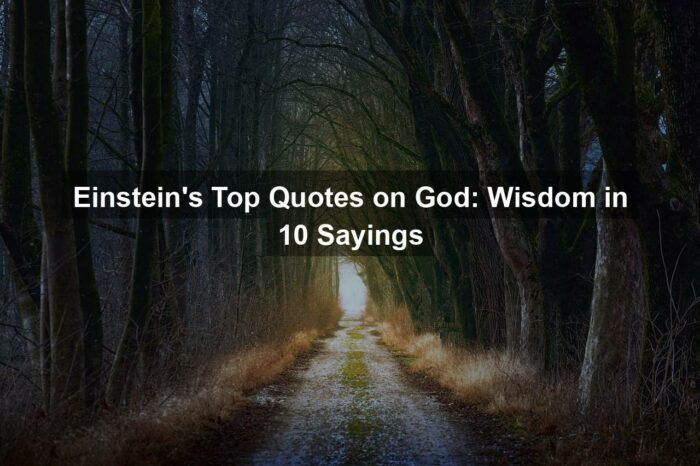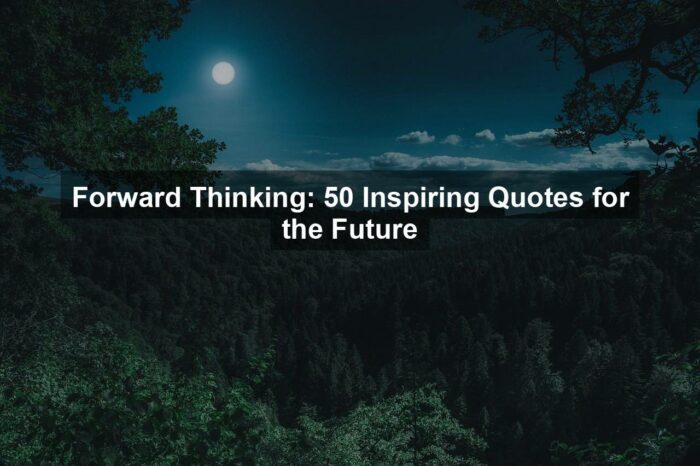Albert Einstein was not only a brilliant physicist but also a deep thinker. He pondered about the mysteries of the universe, the nature of reality, and the meaning of life. In his musings, he often touched on the subject of God, expressing his views on the existence, nature, and role of the divine. Here are ten of his top quotes on God that offer wisdom and insight into this timeless topic.
I believe in Spinoza’s God who reveals himself in the orderly harmony of what exists, not in a God who concerns himself with fates and actions of human beings.
Albert Einstein
Einstein rejected the anthropomorphic and interventionist God of traditional religions. Instead, he embraced the pantheistic view that God is the sum total of the laws of nature and the universe itself. He found divinity in the beauty and elegance of the cosmic order.
The most beautiful thing we can experience is the mysterious. It is the source of all true art and all science.
Albert Einstein
Einstein believed that the human mind is capable of grasping the mysteries of the universe and that this pursuit is the ultimate expression of our creativity and curiosity. He saw science and art as two sides of the same coin, both seeking to reveal the hidden beauty and harmony of existence.
God does not play dice with the universe.
Albert Einstein
Einstein famously expressed his skepticism about the randomness and unpredictability of quantum mechanics. He believed that the universe is governed by deterministic laws, which reflect the rational and purposeful nature of God.
Science without religion is lame, religion without science is blind.
Albert Einstein
Einstein saw science and religion as complementary rather than contradictory. He believed that science provides the empirical evidence and logical reasoning to understand the physical world, while religion offers the moral and spiritual guidance to navigate the human condition.
The important thing is not to stop questioning. Curiosity has its own reason for existing. One cannot help but be in awe when he contemplates the mysteries of eternity, of life, of the marvelous structure of reality.
Albert Einstein
Einstein valued curiosity as a fundamental human trait that drives us to explore the unknown and unravel the secrets of the universe. He believed that the pursuit of knowledge is a never-ending journey that leads to more questions and revelations, and that this journey is a source of wonder and inspiration.
The most incomprehensible thing about the world is that it is comprehensible.
Albert Einstein
Einstein marveled at the fact that the universe is intelligible to the human mind. He saw this as evidence of the rational and ordered nature of the cosmos, and as a reflection of the divine wisdom that permeates all aspects of existence.
My religion consists of a humble admiration of the illimitable superior spirit who reveals himself in the slight details we are able to perceive with our frail and feeble mind.
Albert Einstein
Einstein saw himself as a humble seeker of truth who stands in awe of the vastness and complexity of the universe. He believed that the divine is not a distant and abstract concept but a tangible presence that can be perceived in the smallest and simplest things of life.
Imagination is more important than knowledge. For knowledge is limited, whereas imagination embraces the entire world, stimulating progress, giving birth to evolution.
Albert Einstein
Einstein valued imagination as a key to unlocking the mysteries of the universe. He believed that our ability to envision new possibilities and explore new ideas is what drives scientific and cultural progress, and that this creative impulse is a reflection of the divine spark within us.
Try not to become a man of success, but rather try to become a man of value.
Albert Einstein
Einstein valued integrity and character above material success or fame. He believed that true worth comes from living a life of purpose and meaning, and that this pursuit is the ultimate goal of human existence.
These quotes reveal the depth and richness of Einstein’s thinking on God and the universe. They offer a glimpse into the mind of a great scientist and philosopher who saw the divine in the beauty and harmony of nature, the quest for knowledge and creativity, and the pursuit of moral and spiritual values.




